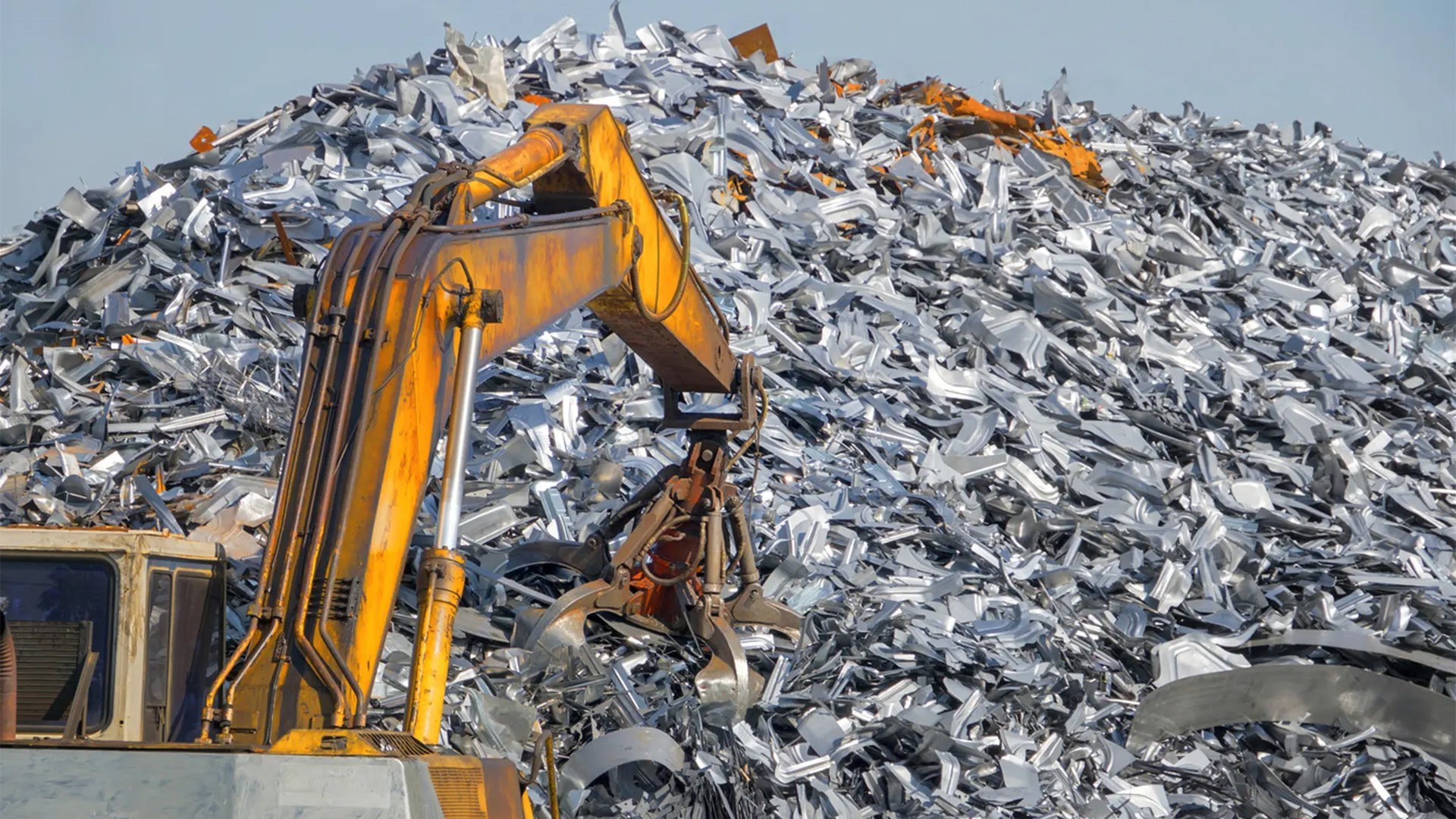
Introduction
In a world increasingly focused on environmental conservation and sustainable practices, the spotlight is now turning towards an often overlooked sector—scrap trading. This article delves into the transformative impact of scrap trading on sustainability, exploring its historical evolution, environmental and economic benefits, challenges, global initiatives, and the role of individuals in shaping a greener future.
The Rise of Scrap Trading
Historical Perspective
The roots of scrap trading can be traced back to the early days of industrialization, where the concept of recycling materials for economic gain began to take shape. Over the years, this practice has evolved, aligning with the growing awareness of environmental issues.
Evolution of Scrap Trading
From informal exchanges in local communities to the establishment of organized recycling industries, scrap trading has come a long way. The evolution of this industry showcases the adaptability and resilience necessary for sustainability.
Environmental Impact
Reduction in Waste
One of the primary advantages of scrap trading is the significant reduction in waste. Instead of allowing materials to end up in landfills, the recycling process gives them a new life, contributing to a more circular economy.
Energy Savings
Scrap trading also plays a crucial role in conserving energy. The extraction and processing of raw materials demand substantial energy, whereas recycling often requires less energy, making it a more sustainable choice.
Lower Carbon Footprint
By reducing the need for new production processes, scrap trading helps lower the carbon footprint associated with manufacturing. This shift towards sustainable practices is essential for combating climate change.
Economic Benefits
Job Creation
The scrap trading industry not only benefits the environment but also stimulates economic growth by creating jobs. From collection to processing, various stages in the scrap trading process contribute to employment opportunities.
Revenue Generation
Businesses engaged in scrap trading find innovative ways to generate revenue. As the demand for recycled materials increases, companies can capitalize on this market trend while contributing to sustainability.
Cost-Effective Production
Utilizing recycled materials in production processes often proves to be more cost-effective than relying solely on virgin resources. This cost efficiency further enhances the economic viability of scrap trading.
Innovations in Scrap Trading
Technology Integration
Modern scrap trading incorporates advanced technologies, streamlining processes and increasing efficiency. From automated sorting systems to blockchain for traceability, technology is driving positive changes in the industry.
Recycling Advancements
Innovations in recycling methods are continuously improving the quality of recycled materials. This, in turn, enhances the market value of these materials and encourages more businesses to adopt sustainable practices.
Circular Economy Models
Scrap trading aligns with the principles of a circular economy, emphasizing the reuse and recycling of materials to minimize waste. This shift in perspective is crucial for creating a sustainable and regenerative economic system.
Challenges in the Industry
Regulatory Hurdles
Despite its positive contributions, the scrap trading industry faces regulatory challenges. Harmonizing international standards and navigating complex regulations is essential for fostering a global culture of sustainability.
Quality Control Issues
Maintaining the quality of recycled materials is a persistent challenge. Ensuring that recycled products meet industry standards is crucial for building trust among consumers and businesses.
Market Fluctuations
The scrap trading market is susceptible to fluctuations in commodity prices. Balancing economic viability with sustainable practices requires adaptability and strategic planning from industry players.
Global Initiatives
International Collaborations
To address global environmental challenges, countries are increasingly collaborating on initiatives related to sustainable practices. These partnerships aim to create a unified front against climate change and promote responsible resource management.
Sustainable Development Goals
The United Nations’ Sustainable Development Goals (SDGs) provide a framework for countries and businesses to align their efforts with global sustainability objectives. Scrap trading contributes significantly to several of these goals.
Corporate Responsibility
Many companies now recognize the importance of corporate social responsibility. Engaging in sustainable practices, including responsible scrap trading, is a way for businesses to fulfill their commitment to environmental stewardship.
Success Stories
Companies Leading in Sustainable Scrap Trading
Highlighting success stories of companies at the forefront of sustainable scrap trading inspires others to follow suit. These pioneers demonstrate that profitability and environmental responsibility can coexist.
Notable Achievements
Recognizing and celebrating notable achievements in the industry helps create positive momentum. Awards and acknowledgments motivate businesses to continue their pursuit of sustainable practices.
Consumer Awareness
Educating the Public
Raising awareness about the impact of individual choices on the environment is crucial. Educating the public about the benefits of scrap trading and responsible consumption empowers individuals to make informed decisions.
Changing Consumer Behavior
As consumers become more environmentally conscious, their purchasing decisions evolve. Supporting businesses that prioritize sustainability, including those engaged in scrap trading, encourages a shift towards a greener market.
Importance of Conscious Consumption
Encouraging conscious consumption involves promoting mindfulness about the environmental impact of everyday choices. Emphasizing the role of consumers in driving demand for sustainable products is key.
Future Trends
Technological Advancements
Anticipating future trends in scrap trading involves considering technological advancements. From smart waste management systems to innovations in recycling technology, staying ahead is crucial for sustainability.
Increasing Market Demand
The growing awareness of environmental issues is driving an increase in market demand for sustainable products. This trend is likely to further incentivize businesses to embrace scrap trading as part of their sustainable practices.
Government Support
Governments play a pivotal role in shaping the future of scrap trading. Supportive policies, incentives, and regulations can create a conducive environment for businesses to adopt and expand sustainable practices.
The Role of Individuals
Small Actions, Big Impact
Individuals can contribute to the sustainability movement through small actions. From proper waste disposal to supporting eco-friendly products, cumulative individual efforts have a significant impact.
Responsible Disposal Practices
Implementing responsible disposal practices at the individual level ensures that waste enters the recycling stream rather than contributing to environmental pollution. Proper disposal is a key aspect of sustainable living.
Supporting Sustainable Brands
Choosing to support brands that prioritize sustainability, including those involved in scrap trading, is a powerful way for individuals to influence positive change. Consumer choices drive market trends and business practices.
Case Studies
Examining Successful Sustainability Models
Case studies offer valuable insights into successful sustainability models within the scrap trading industry. Analyzing these cases provides practical lessons for businesses seeking to enhance their sustainable practices.
Learning from Failures
Understanding the challenges and failures in the industry is equally important. Learning from setbacks helps businesses refine their strategies and contributes to the continuous improvement of the scrap trading sector.
Social Media Influence
Creating Awareness Campaigns
Leveraging the power of social media for awareness campaigns is crucial in spreading the message of sustainable scrap trading. Engaging content can reach a broader audience and inspire positive action.
The Power of Social Media in Promoting Sustainability
Social media platforms provide a unique opportunity to connect with a global audience. Harnessing this power for promoting sustainability encourages a collective effort towards a greener and more responsible world.
Industry Collaboration
Connecting Businesses for a Common Goal
Collaboration among businesses in the scrap trading industry fosters a collective approach to sustainability. Sharing best practices and resources strengthens the sector as a whole.
Sharing Best Practices
The exchange of best practices is essential for continuous improvement. By sharing successful strategies, businesses can collectively work towards creating a more sustainable and resilient industry.
Conclusion
In conclusion, scrap trading is emerging as a powerful force in shaping a sustainable future. With its environmental benefits, economic advantages, and potential for innovation, the industry is positioned to play a crucial role in global efforts towards a greener planet. As individuals, businesses, and governments collaborate, the positive impact of sustainable scrap trading will continue to reverberate across industries and communities.
